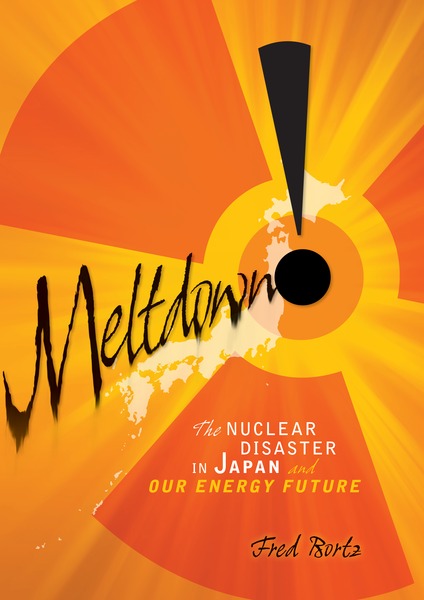Dr Fred Bortz, science educator extraordinaire, returns today to talk about his book Meltdown, which explores the events leading to the disaster at the Fukushima Daiichi nuclear facilities last year.
Dr. Fred has long been fascinated with nuclear energy as evidenced by his work for companies like Westinghouse (nuclear design group at the Advanced Reactors Division), and readers of his book Catastrophe! Great Engineering Failure—and Success will see that Meltdown! picks up right where the discussion of the risks and benefits of nuclear power left off.
The book also explains how earthquake and tsunami detection technology doubtless saved many lives during the event, which is very much in keeping with the "science behind the story" style of Catastrophe!
Dr. Fred does an excellent job drawing readers into the social and scientific issues related to the disaster, and the judicious use of diagrams, maps, and photos provide a fuller sense of how the ideas fit together, even for readers unfamiliar with the basics of nuclear technology. He also provides a rich variety of resources for readers who'd like to learn more after reading the book.
As I read, I kept thinking of the last book that I interviewed Dr. Fred about-- Astrobiology. While doing the research for that story, he was able to go on site to the big telescope and met the scientists who worked there.
A writer can learn a lot from exploring the subject directly this way-- but visiting the site of a nuclear disaster might not be wise.
So I asked....
When you were doing the research for Meltdown, did you have any desire to visit the site, and if so, who would you have wanted to talk to? Where would you focus your attention?
Fred responds...
I haven't given any thought to visiting northeastern Japan. Yes, it would be "cool" to check out the tsunami damage in the same way that we might see the aftermath of a serious automobile accident, but it would also be "creepy" in the same way. And it wouldn't produce anything of value.
When I talk to young readers about my work, I always focus on how to ask productive questions. That is why, had it been possible, I would have liked to tag along with PBS reporter Miles O'Brien, while he was developing the Frontline documentary, "Nuclear Aftershocks," that first aired on January 17, 2012. It asks the same questions that I want to leave my readers with in my book.
The program description at the Frontline web page (http://www.pbs.org/wgbh/
To put that program together, Mr. O'Brien had to talk not only to nuclear power experts but also energy economists and policy-makers, including leading politicians. Like Meltdown!, that documentary leaves the key questions open, because it recognizes the answers will come in a very different world, politically, economically, and technologically. Add a Comment




